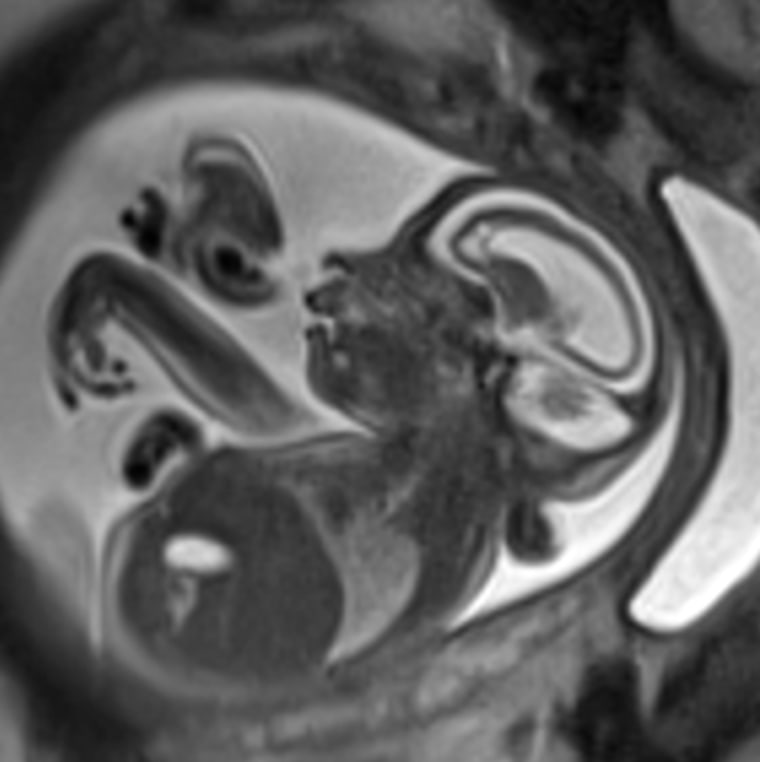A Brazilian baby with brain damage caused by Zika virus stayed infected for more than two months after he was born, doctors reported Wednesday.
That suggests that newborns may continue to be at risk from the virus at a time when their brains are still rapidly growing and developing.

It’s another unpleasant surprise about Zika, the once-uninteresting virus that keeps throwing curveballs at researchers.
The baby already had brain damage from the virus, which can infect a growing fetus and which appears to head straight for developing nerve cells.
Related: Zika May Affect Adult Brains, Too
But the virus continued to actively infect him after he was born, Danielle Oliveira of the University of Sao Paulo and colleagues wrote in a letter to the New England Journal of Medicine.
“On Jan 2, 2016, a male child was born with microcephaly in Sao Paulo, Brazil, at 40 weeks of gestation to a mother who reported having symptoms associated with Zika virus infection during the 26th week of pregnancy,” they wrote.
Magnetic resonance imaging showed the baby boy had brain damage. Nearly two months after he was born, the baby’s blood, saliva and urine all tested positive for Zika. Two weeks later, 67 days after he was born, the baby’s blood still had evidence of Zika virus – not antibodies to the virus, but the virus itself. Seven months later, the blood was clear and the baby had antibodies to Zika.
“When the infant was examined on day 54, he had no obvious illness or evidence of any immunocompromising condition,” they wrote. An immune condition might explain a prolonged infection.
He was developmentally delayed: floppy, uncoordinated for his age and he had cerebral palsy.
The mother had developed a characteristic Zika rash 26 weeks into her pregnancy — in the third trimester. That's bad news. Doctors know the earlier in pregnancy a woman is infected, the worse the damage. This finding, and others, show the developing baby is never safe from the virus.
The father had traveled to Brazil’s Zika-hit northeastern region a few weeks before and had similar symptoms then. The team suspects he infected his wife sexually.
As far as doctors knew, Zika clears up after a week or so. They knew it could cause long-lasting infections during pregnancy because there have been cases where a mother showed evidence of Zika for months after her own infection cleared up. Doctors believe it shows the fetus is infected, and sending bits of virus back into the mother's system through the placenta.
The virus is also known to stay in a man's semen for months.
Related: Zika Took Her Baby. Here is How It Happened
If Zika causes long-lasting infections in newborns, that could indicate the virus will continue attacking the brain and perhaps other tissue even after birth.
There’s no doubt Zika’s causing the birth defects. Fetuses that have miscarried or been aborted have been examined and the virus is in the damaged parts of their brain tissue. Other viruses are known to cause birth defects, including rubella and cytomegalovirus.
And the damage is often profound. There’s no known way to protect the babies in the womb and there’s no treatment for a baby born with the brain damage.
Related: Images of Zika Show Its Path of Destruction
Zika’s not spreading badly in Brazil now — it’s winter there and the Aedes mosquitoes that spread the virus as less active. But there are epidemics in the Caribbean and Florida has reported 43 local cases. Travelers continue to carry the virus home with them from Zika-affected zones.
Researchers are working on a vaccine, but any product is years away from the market. There’s no drug treatment and experts all say the best way to control Zika is to control mosquitoes and protect people from their bites — as well as from sexual transmission of the virus.

